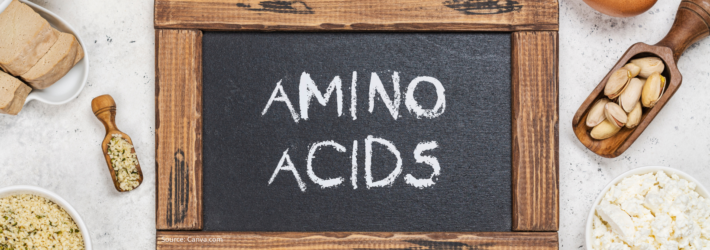It is so frustrating to lay down at night and not be able to fall asleep. You are tired and want to go to sleep, but it remains elusive. Maybe you can fall asleep, but you abruptly wake up at 3 in the morning. Your mind is mulling over the conversation that you are going to have with your boss or replaying the argument that you had with your spouse. Or maybe you can’t stop thinking about that to-do list that keeps getting longer as the hour’s tick by. The worst of it all is you know that if you don’t go to sleep, you are going to have a tough day the next day, feeling tired and grumpy. The first step to take if you have sleep problems is to make lifestyle changes oftentimes referred to as “sleep hygiene.” It is imperative that you address your sleep problems as soon as possible since lack of sleep can lead to all kinds of health problems.
Insomnia is All Too Common Nowadays
Insomnia (trouble sleeping/staying asleep) is very prevalent in the US. About 30-40% of the population struggle with it at some point in their life. Unfortunately, over the past 10 years, it has steadily been increasing. Proper sleep is imperative to achieve physical repair and psychic regeneration. Ideally, most adults should be sleeping between 10 p.m. and 6 a.m. Missing this time window can be disastrous because it disrupts your hormonal rhythm. Approximately three hours after dark, adrenocorticotropic hormone (ACTH) from the pituitary gland naturally decreases, cortisol decreases, and melatonin and human growth hormone increase. This hormonal shift produces the urge to sleep.
While you are sleeping, your body is hard at work, helping to regenerate muscle tissue, consolidate memory and signal the release of hormones that regulate growth and appetite. The secretion of cortisol and melatonin follow a circadian rhythm, meaning they rise and fall with light and dark. Sleep disorders can occur if this rhythm is disrupted.
The health impacts of sleep deprivation and poor sleep are numerous. This study on sleep patterns and cardiovascular disease found that participants who slept well had greater than a 30% lower risk for cardiovascular disease (CVD), coronary heart disease (CHD), and stroke. If the person had a high genetic risk for heart disease, then poor sleep patterns put them at even greater risk for CHD and stroke. Not getting enough sleep also increases your risk for cancer, hypertension, diabetes, dementia, chronic kidney disease, obesity and might make you more susceptible to workplace injury and vehicle accidents.
It is uncertain as to whether sleep disorders are a result of gastrointestinal (GI) problems or if GI problems cause sleep disorders. Nevertheless, they are related and both should be addressed.
Sleeping well is imperative to good health. Here are some tips to help you get a good night’s sleep.
Train the Brain to Feel Sleepy and Awake at Regular Times
It is important to set fixed times for bedtime and awakening and to stick to those times, even on weekends. Your body should let you know when to sleep. Many of us have lives that don’t allow us to stop and listen to our body’s internal clocks. We watch the late news, stay up late to catch the ballgames, get engrossed in a movie, or work late into the night trying to meet work deadlines. All of which prevent us from regular sleep patterns. We should remind ourselves every evening of the importance of regulated sleep, and truly stick to our fixed times of sleep and awakening. It is important to actually schedule our lives around this important cycle and not the reverse.
If you have to go to the bathroom in the middle of the night, don’t turn on the light (just try not to stub your toe, that will definitely wake you up)! Leaving the light off may help avoid hormonal changes which can affect the rest of the night’s sleep patterns.
Avoid taking naps during the day. If you have to, take a 30-minute power nap, but no longer. This is tough if you aren’t sleeping at night and you desperately need a nap. But napping in the day will create a vicious cycle that can be difficult to break.
Develop a Strong Mental Association Between the Bedroom and Sleep
You want your brain to associate your bed and bedroom with sleep only. That means you might have to change some practices.
- Use the bedroom only for sleep, this means don’t watch TV in bed. If you like watching TV before bed, go into another room (with your amber-colored glasses on), and whatever you do, don’t watch stimulating content (like the news, a nail-biting mystery, or an action-packed drama). Getting the TV out of the room might be hard for some of you because it is such a habit. Give it a try for 3-4 weeks and see how it works. You might be surprised how much you don’t miss having a TV in your room. Some experts say not to read in bed either. If you like to read before bed, read on the couch then go to bed when you feel sleepy. I personally love to read before I go to bed and it actually helps me get sleepy. Just don’t read anything stimulatory, like a nail-biting mystery or an action-packed drama.
- Get into bed only when you are sleepy. If you are unable to go to sleep, move to another dimly lit room; do not lie in bed awake. Do some breathing exercises, simple stretches, and/or meditation to turn off the brain.
Avoid Being Over-stimulated at Bedtime
It is important to focus on relaxing near bedtime and to avoid drinks that can stimulate or prevent you from entering a restorative sleep.
- Decrease or avoid caffeine. This study found that drinking 400 mg of caffeine (about 4 cups of coffee) at least 6 hours before bedtime was very disruptive to sleep. I can tell you that I wouldn’t do well with that much caffeine even if I drank most of it 12 hours before bedtime. A former client was having trouble sleeping and staying awake during the day. What worked for her was stopping all caffeine, along with practicing sleep hygiene tips. Avoiding all caffeine enabled her to sleep better, which significantly improved her quality of life. It is important that you experiment with how much caffeine you can tolerate.
- Alcohol is a depressant and helps you feel relaxed and even fall asleep. But that is where it stops. Studies indicate that it interferes with the quality and duration of sleep. Later in the night your sleep will actually become disrupted because of alcohol and other sedatives. Everyone is different and will respond to alcohol differently, but if you are having trouble sleeping, it is best to avoid alcohol.
- TV, computers, and texting should be stopped two hours prior to going to sleep. Blue lights emitting from electronics inhibit melatonin production. You can purchase amber-colored glasses to block blue light from Amazon. A good pair is UvexSkyper Safety Eyewear (around $12) or if you have to wear eyeglasses and need a “fit over”, the ones that I use are by Swanwick (these are more expensive, around $70). These may look silly, but they can contribute greatly towards falling asleep faster.
- Meditation techniques help shut the mind down and relax the body. Many people with insomnia find themselves in a vicious cycle of daytime drowsiness and nighttime alertness, which leads to anxiety over whether or not they can sleep that night, which leads to not sleeping and back to daytime drowsiness. Mindfulness-based meditation techniques are appropriate treatments to help break this cycle by allowing you to become aware of your thoughts, feelings, and physical symptoms. A quick search on YouTube will provide a large variety of mindfulness techniques to help you drift to sleep.
Create an Environment Conducive to Sleep
These tips will help you create an environment to welcome sleep:
- Your room must be dark. This Harvard Health Letter describes the impact of light on sleep. Even just a little bit of light from a night light can negatively impact sleep. Cover all LED lights and use black-out curtains. Visit blackoutez.com
- Keep it quiet, use earplugs if necessary (Flents Quiet Please Foam Ear Plugs are a good brand).
- Cool your bedroom-experts recommend between 65-72 degrees Fahrenheit is optimal sleeping temperature.
- Be comfortable-have a comfortable mattress and pillow. This is definitely an individual preference and today’s mass-market caters to everyone’s specific requirements.
- Just like kids, adults will benefit from developing an evening ritual. Create some ambiance by turning off the lights. Prepare for the next day by jotting down a checklist to do the next day or writing in a gratitude journal.
- Turn off all electronic devices (TV, computer, I-Pads) 2 hours before bedtime or wear amber-colored glasses.
- Have a cup of herbal tea like Sleepy Time tea.
- Practice progressive relaxation like gentle stretching and yoga. I have a friend and if she wakes up in the middle of the night, she does some gentle yoga exercises and after about 20 minutes, she is able to get back into bed and fall asleep.
- Take an Epsom salt bath (a great source of absorbable magnesium) or supplemental magnesium (like magnesium glycinate). This study found that 500 mg of magnesium significantly improved sleep scores in elderly people with insomnia compared to a placebo.
Does Diet Have an Impact on Sleep?
There are diet solutions for going to sleep and staying asleep. Experiment and see which ones work for you!
It’s the Carbohydrates that Make You Sleepy, Not Turkey!
One thing that I have noticed with working with clients is the relationship between carbohydrate intake and sleep. Many of my clients find themselves unable to sleep after drastically reducing their carbohydrates to help control small intestinal bacterial overgrowth (SIBO). In some people, consuming carbohydrates in the evening is necessary to induce sleep. Researchers found that people who ate carbohydrates with a higher glycemic load 4 hours before bed were able to fall asleep faster than those who had low glycemic index carbohydrates. In the study, the high glycemic carbohydrate was jasmine long grain rice, accompanied with steamed vegetables. Lucky for us SIBO folks, jasmine rice is low in fermentable carbohydrates and digested in the upper small intestine, which reduces feeding the microbial overgrowth. The reason why carbohydrates help you go to sleep is because of their ability to increase tryptophan levels (you may have heard about tryptophan inducing sleep on Thanksgiving day-surprise, it’s not the turkey, it is the carbohydrates that go along with the turkey)! Tryptophan is converted into serotonin, a neurotransmitter necessary for normal sleep. Keep in mind the timing of carbohydrates and sleep is important. The authors found that eating the meal 4 hours before, not 1 hour before bed, was the magic time frame.
Balance Your Blood Sugar to Stay Asleep
Some people may wake up in the middle of the night with an adrenaline rush because their blood sugar dropped, stimulating the stress response. Sixteen healthy subjects were given insulin to cause their blood sugar to drop during sleep. The drop in blood sugar caused them to awaken in the night. Typically when you have this reaction, you abruptly wake up and feel wide awake. These people would need more fat, protein, and a lower glycemic index carbohydrate snack before bed to prevent this low blood sugar reaction from happening in the wee hours of the morning.
Avoid Overeating Before Bed
Avoid eating large meals at least 3 hours before bedtime. Going to sleep with a full stomach can lead to heartburn and indigestion. This just makes sense. Having a lot of food in the stomach requires that the body engages in the active process of digestion, instead of helping the body to wind down.
Another helpful tip that doesn’t fit into any of my categories but is very important is to get at least 30 minutes of natural sunlight per day.
Make Sleep a Priority
The old adage “I’ll sleep when I’m dead” could bring you to that reality sooner than later. Following these simple steps should lead you on your way to a well-needed and well-deserved sleep each and every night. If you still are unable to sleep after implementing these recommendations, then seek help. You may need one-on-one guidance to address other causes that may be leading to your sleep disturbances, like hormonal imbalances and nutrient deficiencies. Targeted supplements to help you sleep and stay asleep might also be warranted. I challenge you to start implementing these lifestyle changes so that you can begin your journey to overall good health and peaceful sleep.



